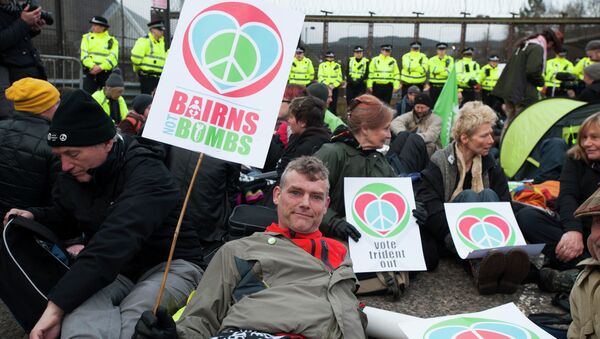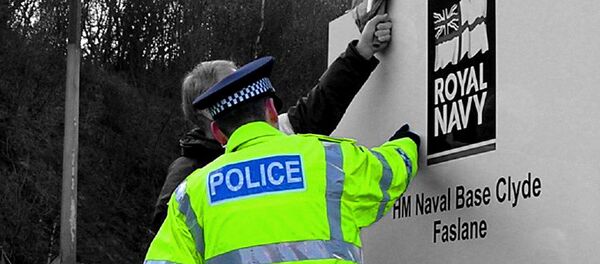Labour and Scottish National Party (SNP) are the main contenders for seats in the Scottish parliament. In the current election campaign for seats in the UK parliament, the issue of the renewal of nuclear submarines armed with Trident missiles is a major point of contention.
"If we have the Labour government, and the Labour government calls for a start to the renewal of Trident, that is not going to look good for them in the next election to the Scottish parliament next year," Scottish CND head John Ainslie told Sputnik.
The two parties that are going to be the main rivals in the elections in Scotland in May 2016 could now become allies in the UK parliament against Conservatives.
However, the issue of Trident renewal is the stumbling block that nullifies any chances of cooperation.
Both the leader of the SNP Nicola Sturgeon and deputy leader Stewart Hosie have made it clear that the SNP would not enter a formal coalition with Labour unless the former "have it in writing [from Labour] that the replacement of Trident would not go ahead," Ainslie explained.
Nevertheless, the Labour party itself is divided on the issue of renewing the nuclear deterrent. This, in turn, makes the position of a possible Labour government unclear, and plays into hand of Conservatives.
The only way to guarantee a continuous nuclear deterrent in the United Kingdom is to vote Conservative, a party spokesman claimed during a BBC2 debate on defense and security on Tuesday.
Britain currently operates four Trident submarines from the Faslane area of Scotland, the only facility in the United Kingdom able to accommodate the country's nuclear deterrent.
The potential cost of renewing the Trident nuclear deterrent infrastructure is comparable to the 2013/2014 budget for the country's healthcare service.




